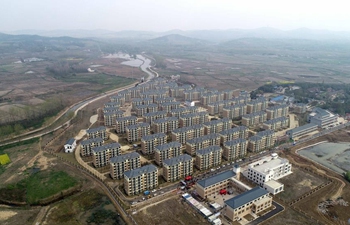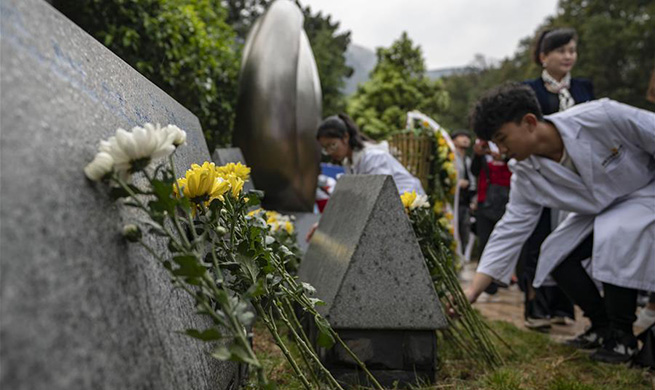CANBERRA, April 4 (Xinhua) -- The Opposition Australian Labor Party (ALP) has promised bigger tax cuts for 2.9 million working class Australians if it wins May's general election.
Ahead of delivering his budget reply speech on Thursday night, ALP leader Bill Shorten promised that his plan for the economy would deliver bigger surpluses, more tax relief for low-income workers and greater investment in schools and hospitals than that promised by the government.
Treasurer Josh Frydenberg on Tuesday night delivered the Federal Budget for 2019-20, forecasting a surplus of 7.1 billion Australian dollars (5.05 billion U.S. dollars) by the end of June 2020, rising to 17.8 billion AUD (12.67 billion USD) by the end of financial year 2021-22.
The strong outlook gave Frydenberg and Prime Minister Scott Morrison the leeway to announce tax cuts worth 158 billion AUD (112.4 billion USD) for Australians earning up to 200,000 AUD (142,300 USD) per year.
Labor's plan would limit the tax cuts to those earning up to 125,000 AUD (88,900 USD), a move Shorten said would allow the party to deliver more significant cuts for working class Australians who needed it most.
The 2.9 million Australians earning less than 40,000 AUD (28,400 USD), 57 percent of who are women, will benefit the most from Shorten's proposal.
Morrison said the Opposition Leader's speech on Thursday night would consist entirely of "lies and taxes."
"What Australians I think will be more familiar with as we head towards the next election is that all you'll hear ultimately from the Labor Party is lies and taxes," he told reporters.
"That's what Bill Shorten is about: telling lies about what the government has done, and funding anything he talks about with higher taxes."
Tanya Plibersek, the ALP's deputy leader, dismissed the notion that the party is waging "class war" by limiting tax relief to the working class.
"Why is it class war to expect people on low incomes to be treated fairly? Honestly, every time, we want to stand up for people on low incomes, or middle incomes, that's suddenly class war," she told Australian Broadcasting Corporation (ABC).
"I don't get that criticism at all. I mean people on low incomes are really struggling."












